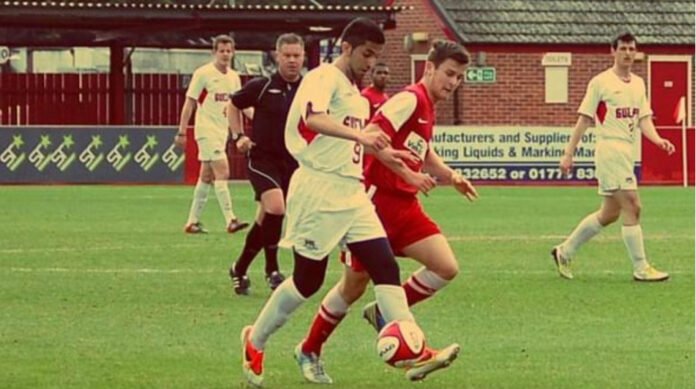Professional football is a sport known for intense competition and high stakes, and where every incremental improvement in player performance can make a huge difference. Discussing improvement in a player’s ability is where trainers like Mohammad Ali Heydarpour, popularly known as Mo Ali, have begun to make an impact. Famous for his unique training techniques and ability to enhance individual players’ skills, Ali’s inspiration has reached beyond personal training to affect entire football teams worldwide.
Ali’s involvement with national teams and prominent football clubs shows a change toward adopting more sophisticated and personalized training programs. His methods, which combine technical skills with physical conditioning and mental preparation, have been particularly effective. This approach was notably implemented with the Thailand National Team before participating in the 2019 Asian Cup. Under his supervision, the team underwent a transformation that focused on enhancing agility, precision, and tactical awareness, which are the key factors in high-stakes matches.
The core of Ali’s training viewpoint is to customize sessions that address the specific needs of the team while paying attention to improving each player’s individual capabilities. For example, during his sessions with the Thailand National Team, he introduced drills that improved the players’ reaction times and decision-making under pressure. These sessions included high-intensity interval training combined with technical drills that simulated match conditions, enhancing players’ ability to perform in actual games.
Moreover, Ali’s training is not confined to physical and technical improvements. He emphasizes the game’s psychological aspects, teaching players to maintain focus, manage stress, and use their mental energy to improve performance. This approach is vital for teams competing internationally, where presence of mind is as important as physical fitness.
The impact of such training can be seen in the enhanced performance of teams during international competitions. Teams trained by Ali display prominent improvement in coordination, a higher level of fitness, and a more acute tactical understanding of the game. These enhancements are crucial during competitions like the Asian Cup, where marginal gains can dictate the outcome of matches.
Furthermore, Ali’s influence has increased through collaboration with club teams across various football leagues. His engagement often involves working closely with the coaching staff to integrate his training methods into the team’s regular practice routines. This collaboration ensures that the benefits of his training are sustained over longer periods, allowing teams to continually grow and adapt to the competitive demands of top-tier football.
Ali’s methods have been shared widely across social media platforms, where he regularly posts training content with millions of viewers. His online presence has boosted his profile and provided teams and trainers worldwide with accessible insights into his training philosophy and techniques. Such visibility has encouraged a broader dialogue on training practices and their growth in response to the needs of modern football.
Ali’s work with international teams proves his ground-breaking approach to football training. It highlights the critical role of innovative training techniques in uplifting team performance and adapting to the demands of international football. As beginner football teams continue to seek competitive edges, trainers like Ali will remain integral to their strategies, pushing the boundaries of what is possible in sports training.
In summary, Ali’s global influence on football teams clearly indicates how individual brilliance and unique training methods can upgrade teams’ performance on the international stage. His work enhances physical and technical skills and fortifies players’ mental toughness, preparing them for the challenges of high-level competition.


